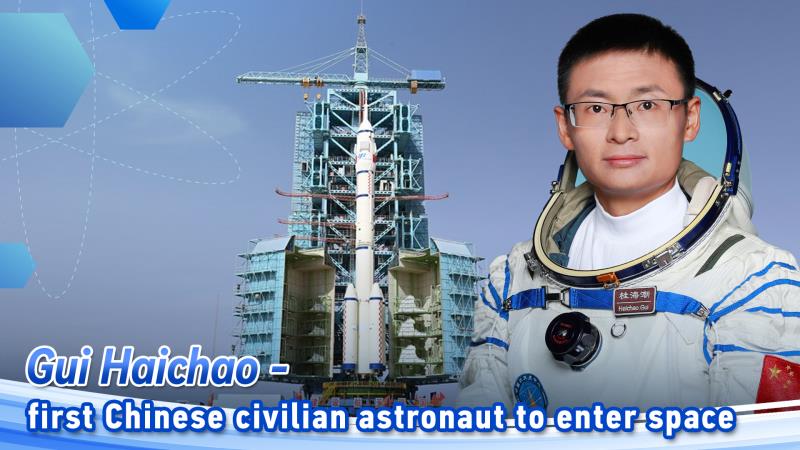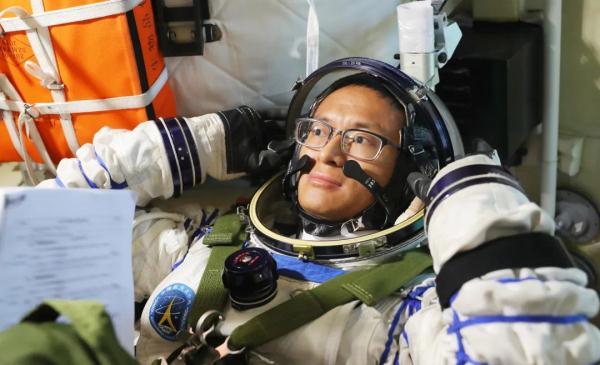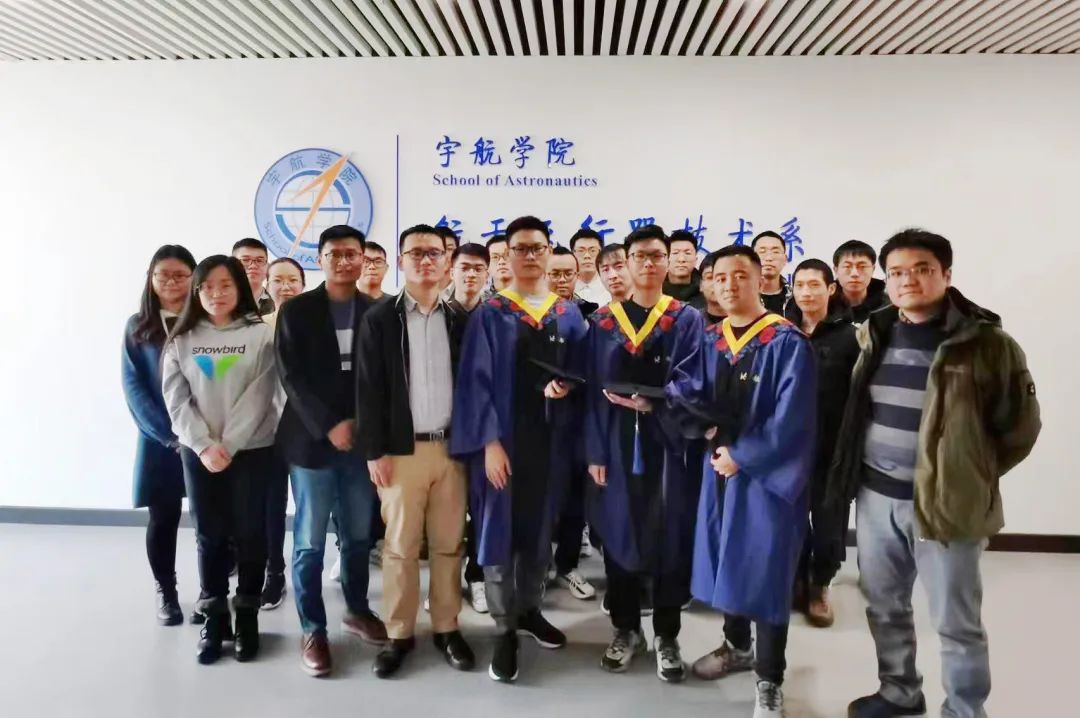
Gui Haichao is a university professor who specializes in spacecraft dynamics and control technology for aerospace systems. His long-held dream of flying to space has now become a reality.
Accompanied by commander Jing Haipeng and flight engineer Zhu Yangzhu, Gui took off on the Shenzhou-16 spacecraft from the Jiuquan Satellite Launch Centre in northwest China on Tuesday morning.
In this journey to the China Space Station, Gui has become the first Chinese civilian astronaut as well as the first payload specialist to enter space. During the mission, he will manage and maintain the payload for space science experiments.
Compared to previous missions, it is the first crewed mission with the participation of three types of astronauts with different professional backgrounds.
Long-harbored aspiration for space
Gui grew up in a regular family in southwest China's Yunnan Province. His interest in aerospace began at the age of 17 when he tuned in to the campus radio and got the news of Yang Liwei's historic maiden manned spaceflight for China in 2003, according to a social media post by his university.
"I wasted no time in applying," said Gui, referring to the moment he found that China was recruiting its first group of payload specialists in 2018.
Over the past few years, Gui was trained to handle highly complex equipment carried aboard a space shuttle and to conduct experiments in space.
However, the training initially proved challenging for him.
"I felt intense dizziness and disorientation after the centrifuge rotation training," said the 36-year-old professor from the School of Astronautics at Beihang University.
"So I added extra exercises, sought guidance from instructors, and adopted some of the training methods used by pilots. Finally, my ability to endure vestibular sensations gradually improved," said Gui during an interview with China Media Group (CMG).
Gui is a sports enthusiast who finds joy in activities like long-distance running, cycling and swimming. He has consistently maintained a fitness regimen.
"Several times when we would go to see Professor Gui, he would be running in the sports field," said Su Wenjie, one of the astronaut's PhD students.

Chinese astronaut Gui Haichao in training, September 20, 2022. /CMG
Chinese astronaut Gui Haichao in training, September 20, 2022. /CMG
In May 2018, China started the selection process for the third batch of astronauts for the space station project. In addition to astronauts, this round introduced two new categories: aerospace engineers and payload specialists.
"Such division of responsibilities allows professionals to effectively manage their respective tasks, ensuring the safety and reliability of large quantity of scientific payloads and experiments during long-duration flights," said Gui.
Since entering the application and development phase, the space station has witnessed an increase in the number of scientific experiments, Gui said, noting that the level of expertise required for specific specialized operations has become more advanced.
A dedicated teacher
Gui obtained his bachelor's and PhD degrees in aerospace engineering from Beihang University in 2009 and 2014, respectively. Afterward, he went to the Department of Earth and Space Science and Engineering at York University before joining Ryerson University in Toronto, Canada as a post-doctorate researcher.
In 2017, Gui returned to his alma mater to pursue teaching at the School of Astronautics. His research focuses on spacecraft dynamics and their practical applications in space systems.
During a press conference on Monday, he expressed his long-held dream to move his "beloved research work" into the realm of space.
As one of Gui's first PhD students, Su recalled that her mentor would always provide precise guidance when it came to details. When reviewing doctoral dissertations, Gui would meticulously lists 30 to 40 points of revision, even pointing out incorrect image citations.
"There were times when I encountered an issue while reproducing research results, and Professor Gui promptly suggested adjusting certain parameters. After making the adjustments, everything fell into place immediately," she said.
"During the training, he kept reading essays and would recommend those that matched my research direction. I know he is very busy, but sometimes during dinner time, he would call me to give detailed advice on my research."

Gui Haichao (second from the left in the front row) taking a group photo with master's graduates from the laboratory. /School of Astronautics at Beihang University
Gui Haichao (second from the left in the front row) taking a group photo with master's graduates from the laboratory. /School of Astronautics at Beihang University
In the eyes of his collogues, Gui is optimistic and open-minded, rarely disturbed by negative emotions.
Even in the face of setbacks, he quickly recovers his composure and engages in his work with passion.
Jia Yinghong, his senior fellow and also a faculty member at the School of Astronautics, said that Gui seldom hesitates or dwells on difficulties when tackling research projects that involve complex technical challenges.
"He is extremely motivated, possesses exceptional mental resilience, and it's rare to see him worried or distressed," said Jia.
In his spare time, Gui enjoys calligraphy. He even wrote his own doctoral thesis defense announcement using a calligraphy brush.
Classmate and roommate Wang Yue said that every night before going to bed, Gui would sit down serenely and write his diary.
Once, at the office, he stumbled upon some old entries in his diary and burst into laughter, fondly reminiscing about his innocent days as a student.